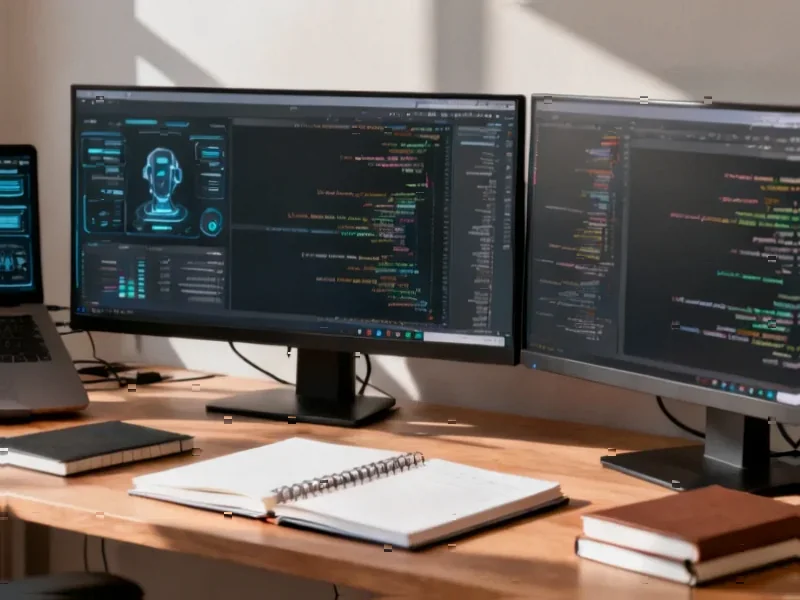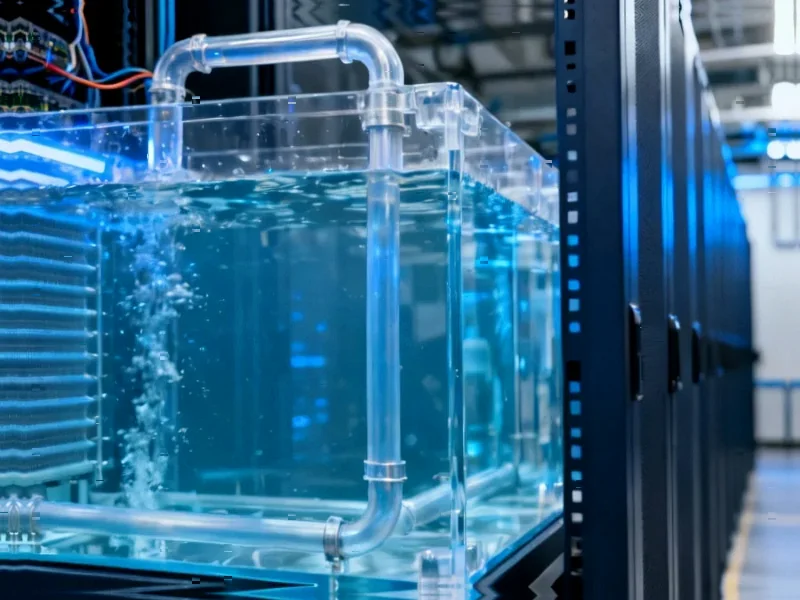According to Business Insider, AI adoption has surged to 90% among software professionals according to a September Google Cloud report, representing a 14% increase from last year. The publication spoke with seven engineers including Andrew Wang from Fermat, Geeta Shankar from Salesforce, and Sumanu Rawat from Walmart Global Tech about how AI is transforming their work. Engineers reported relying less on peers and managers for smaller questions, with many now turning to AI tools like Copilot for immediate answers. Cisco’s Anurag Dhingra described software engineering as being on the “bleeding edge of what is possible with AI,” noting that engineers increasingly treat AI agents like coworkers. This shift has made teams feel more “siloed” according to Wang, reducing face-to-face interactions while changing the nature of formal meetings toward deeper design discussions.
AI replaces water cooler chat
Here’s the thing about software engineering – it was already a pretty solitary job compared to many professions. But now AI is taking away those precious moments of human connection that used to happen naturally. Engineers told Business Insider they’re having fewer of those impromptu “hey, check this out” conversations that used to spark innovation and build relationships.
Think about it – when you can get instant answers from an AI instead of walking over to a colleague’s desk, why bother? The problem is you’re not just getting answers, you’re missing out on the relationship building that happens during those small interactions. Feneel Doshi from a New York startup nailed it when he said workplace culture “depends on deliberate connection and not just productivity tools.”
The upside: deeper conversations
But it’s not all bad news. The engineers Business Insider spoke with noticed that the conversations they ARE having have become more meaningful. Instead of wasting meeting time on syntax errors or basic troubleshooting, teams are debating system architecture and strategic direction. As Doshi put it, “We’re debating tradeoffs, not the syntax.”
Basically, AI is handling the grunt work while humans focus on the big picture. Rawat observed that “software engineers are thinking more like product managers” now. And Shankar noted that tasks that used to take two days now take five hours, which means teams can share findings and iterate faster. So while there might be fewer casual chats, the remaining human interactions are arguably more valuable.
The junior engineer problem
Now here’s where it gets tricky for new grads and entry-level engineers. Remember those early days when you’d wait hours for a 15-minute mentor meeting just to ask about some undocumented process? That experience – while frustrating – was actually valuable for building relationships and learning workplace norms.
With AI handling those basic questions, junior engineers might miss out on those organic mentorship opportunities. They’re getting answers faster, but they’re not building the same network or learning the social dynamics of their team. LinkedIn’s Prashanthi Padmanabhan noticed this trend too – she’s seeing more entry-level engineers deliberately scheduling coffee meetings with leaders, probably because they sense something’s missing.
Is this just a phase?
Cisco’s Dhingra thinks this isolation feeling is temporary. He believes it will lead to better collaboration around bigger problems once everyone adjusts. And honestly, he might be right. We’re still in the early days of figuring out how to integrate AI into our workflows without losing what makes human teams effective.
The real question is whether companies will recognize this shift and intentionally create spaces for those spontaneous interactions that AI can’t replace. Because while AI can answer technical questions, it can’t build trust, read social cues, or create the kind of team chemistry that leads to breakthrough innovations. The engineers who thrive will likely be those who balance AI efficiency with deliberate human connection.




